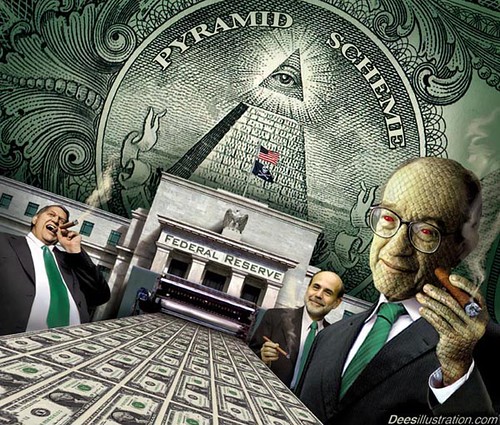Donald Trump reignited the long-standing debate over the independence of Federal Reserve (Fed), by calling for the presidential oversight of rate decisions.
The former US president, during a Mar-a-Lago press conference, expressed his wish to be able to influence the Fed’s decision on interest rate adjustments. This could have an impact on the US financial sector.
Trump’s frustration reflects a growing unhappiness among Americans over the Fed’s slow pace of lowering interest rate.
The implications of a shift in policy go far beyond mere political rhetoric.
The president’s influence on the Fed could have a negative impact on the US economy.
Politicizing the Fed can be dangerous
Federal Reserve is designed to be independent of political influences to make sure that decisions on monetary policies are based more on long-term economic considerations and data than they are influenced by short-term politics.
Trump’s demand for presidential control of interest rates is a challenge to this principle. It harkens back to a time when political intervention in central banking had disastrous results.
The 1970s were a notable parallel, when President Richard Nixon pressured the Fed into keeping interest rates low. This contributed to the economic phenomena known as “stagflation” – a combination of slow economic growth and high prices.
In recent years, Turkey’s president Tayyip Erdoan has exercised a similar influence on his country’s Central Bank, leading to severe economic instabilities, such as soaring prices and currency devaluation.
Trump’s assertion that he is “better at instinct” than Fed officials, however rhetorical it may seem, is more than just an empty boast.
This could signal a shift to a central bank that is more influenced by political cycles than economic reality.
This could undermine the Fed’s credibility and cause financial markets to be unstable, as they rely on its independent judgement in guiding economic expectations.
The economic implications of a politized Fed
The US capital market could be severely affected if the President is allowed to decide on interest rates.
Investors may lose faith in the Fed’s ability to control inflation and growth. This could lead to an increase in volatility on the market.
A perception of monetary policy being used to further political ends could lead the US dollar to lose credibility on the international stage.
The stability of the US Financial System could be questioned by foreign investors or governments, resulting in a reduction of demand for US Assets and an increase in borrowing costs for US Government.
A politicized Fed may lead to the manipulation of interest rates to suit the political interests of the ruling parties.
Raising interest rates near an election, for example, could have a negative political impact, leading the Fed to maintain artificially low rates, even when economic conditions justify a rate hike.
This could lead to an increase in economic imbalances, and long-term instability.
In many developing economies, governments are seen controlling the price of basic goods such as fuel or electricity in order to keep political favour.
International organisations like the International Monetary Fund are often required to intervene in order to correct distortions that can cause economic crisis.
Central bank independence is essential
Independence of the Federal Reserve, a cornerstone in modern economics policy is essential. The central bank should be free of political influences.
Trump may have a point in criticizing the Fed for its handling of interest rate policy, but giving the president power to impose monetary policies would be a bad precedent.
It is important that the Fed makes decisions on economic grounds, and not on political ones. This will ensure the integrity of the US Economy.
While some may gain short-term benefits from politicizing the Fed, it will ultimately harm the stability and growth of the US Economy.
While Trump may have valid concerns regarding the interest rate climate, the proposal that he give control to the Fed over its monetary policy is fraught.
This would erode central bank independence, cause financial market instability, and put the US economy in a long-term state of uncertainty.
To ensure that the US economy remains strong and stable, the Fed must be an independent institution free of political influence.
This post Why Trump’s push for Presidential oversight of Fed rate decisions is risky appeared first on ICD
This site is for entertainment only. Click here to read more






